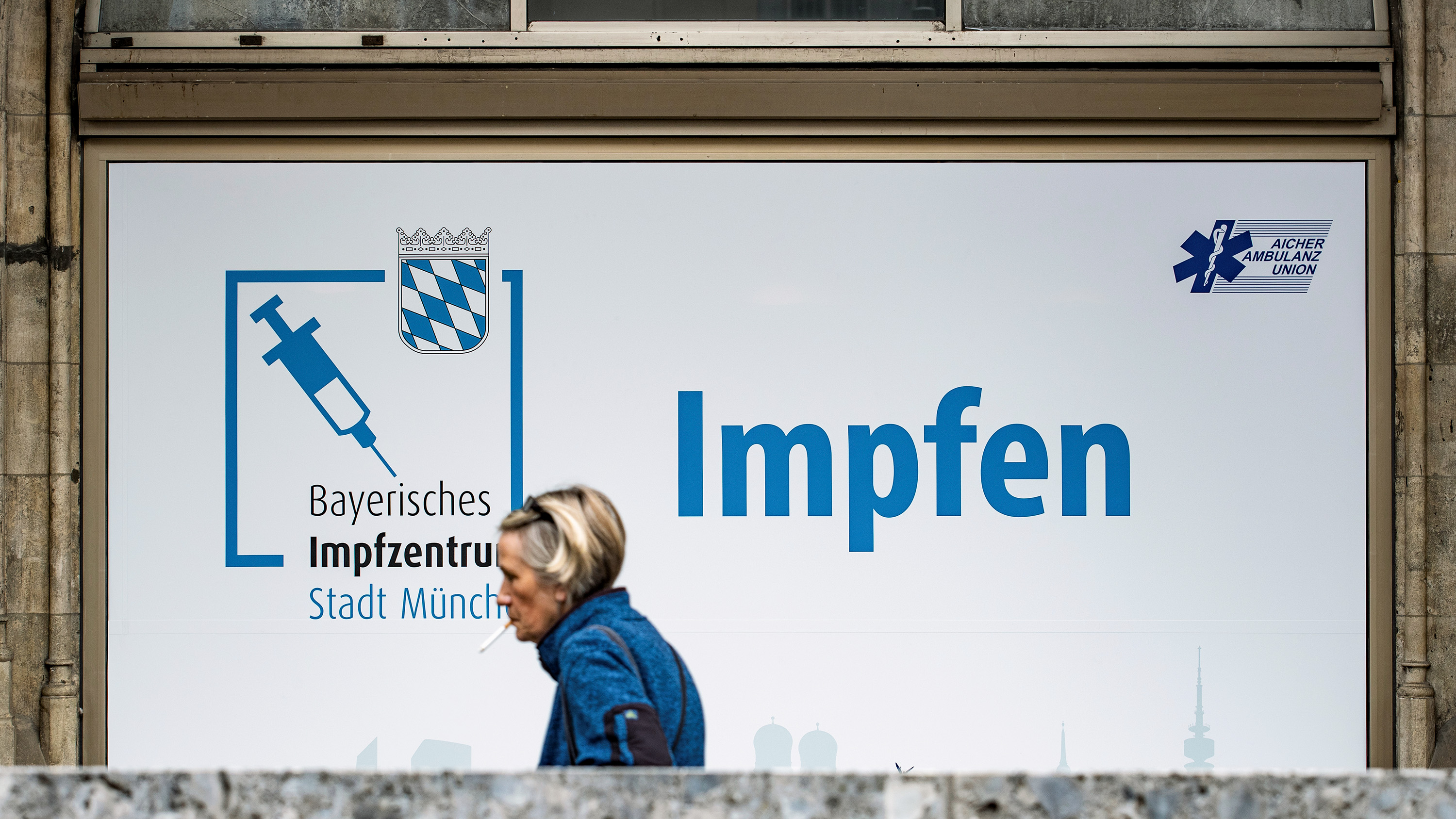What Europe’s new covid surge means—and what it doesn’t
New restrictions are coming into place across Europe as covid cases rise again. But there are several reasons why a new wave is happening.

Germany’s coronavirus case numbers have reached their highest levels since the early days of the pandemic, with warnings that covid is “spreading dramatically” and requires a “quick and unified response.” At the same time, the Netherlands is imposing partial restrictions to control rising case levels, including an 8 p.m. curfew on stores and restaurants, and empty stadiums for professional sports. Austria, meanwhile, has just ordered a strict new lockdown— but only for unvaccinated people.
It’s a similar picture across much of Europe, which Reuters reports is now responsible for more than half of all covid cases worldwide—the highest proportion since April 2020. In Croatia, which has 4 million residents, cases and fatalities are now higher than they were during the country’s spring wave. The average of 55 daily deaths exceeds its levels this time a year ago, part of a pattern that is being seen across much of the continent. So what’s happening?
”The two main drivers are the cold season and the low vaccination coverage,” says Marcel Salathé, an associate professor and digital epidemiologist at EPFL in Switzerland. “Only one of them is inevitable.”
Experts point to the different factors feeding into this rise in cases. One is the virus itself, and the continuing spread of the more infectious, faster-spreading delta variant of SARS-CoV-2. It first appeared in India in late 2020, meaning that for many countries this is the first winter it will be the dominant strain.
At the same time, many mitigation strategies have been relaxed as people try to get away from social distancing and mask use and back to something that looks a bit more like pre-pandemic life. Austria had recently banned unvaccinated people from visiting restaurants, cafés, and—yes—ski lifts, but its new lockdown is far more severe.
In a briefing to the Royal Society of Medicine last week, British epidemiologist Tim Spector said we are coming to realize that “vaccines alone, even in countries that have got higher vaccination rates than ours, are not the sort of final solution to this.”
“We need a combination of measures,” said Spector, who runs the ZOE Covid study at King’s College London. “How high we want those rates to be is determined by our complacency and our relaxation to some of the rules we had in place that last year I thought were over the top, and now this year I think are insufficient.”
Despite this, vaccination rates are the most important factor that explains the variance between countries like Croatia and Italy.
Many Eastern European countries have lower rates of vaccination than some of their neighbors: Croatia is at 46% fully vaccinated, for example, while Slovakia is at 43%. (The European average is around 56%.) Unvaccinated people are driving the increase in numbers, said Austrian chancellor Alexander Schallenberg when announcing his country’s new lockdown: “The [daily infection] rate for the unvaccinated is at over 1,700, while for the vaccinated it is at 383.”
Where vaccination rates are higher, the result is less serious illness and death—even if transmission is high. In the UK 80% of people over 12 have had two doses of covid vaccine, for example.
“The countries that are doing best are the ones with high vaccine coverage and effective measures,” says Salathé. “The worst countries are the ones that have neither. Most are in between.”
But even when vaccination rates are high and the pressure of cases is relatively low, it may not be enough for long-term protection—especially given the fading effectiveness of vaccines over time.
“The UK rolled out a vaccination program earlier than most countries, and therefore has experienced the impact of waning immunity earlier,” says Michael Head, a senior research fellow in global health at the University of Southampton. “The boosters here in the UK are clearly having an impact around hospital admissions and new cases in older populations.”
That means continuing to vaccinate people, and boosting the immune response of people who were vaccinated early in the cycle, remains vitally important.
“Where we see uncontrolled outbreaks, we also see emergence of new variants of interest and concern, and we really don’t want any new variants to become dominant and have a greater impact upon the effectiveness of our vaccines,” he says. “Ultimately, the world cannot fully relax until the vast majority of the world is vaccinated. The combination of vaccine hesitancy and lack of access to vaccines is everyone’s problem.”
Deep Dive
Policy
Is there anything more fascinating than a hidden world?
Some hidden worlds--whether in space, deep in the ocean, or in the form of waves or microbes--remain stubbornly unseen. Here's how technology is being used to reveal them.
What Luddites can teach us about resisting an automated future
Opposing technology isn’t antithetical to progress.
A brief, weird history of brainwashing
L. Ron Hubbard, Operation Midnight Climax, and stochastic terrorism—the race for mind control changed America forever.
Africa’s push to regulate AI starts now
AI is expanding across the continent and new policies are taking shape. But poor digital infrastructure and regulatory bottlenecks could slow adoption.
Stay connected
Get the latest updates from
MIT Technology Review
Discover special offers, top stories, upcoming events, and more.